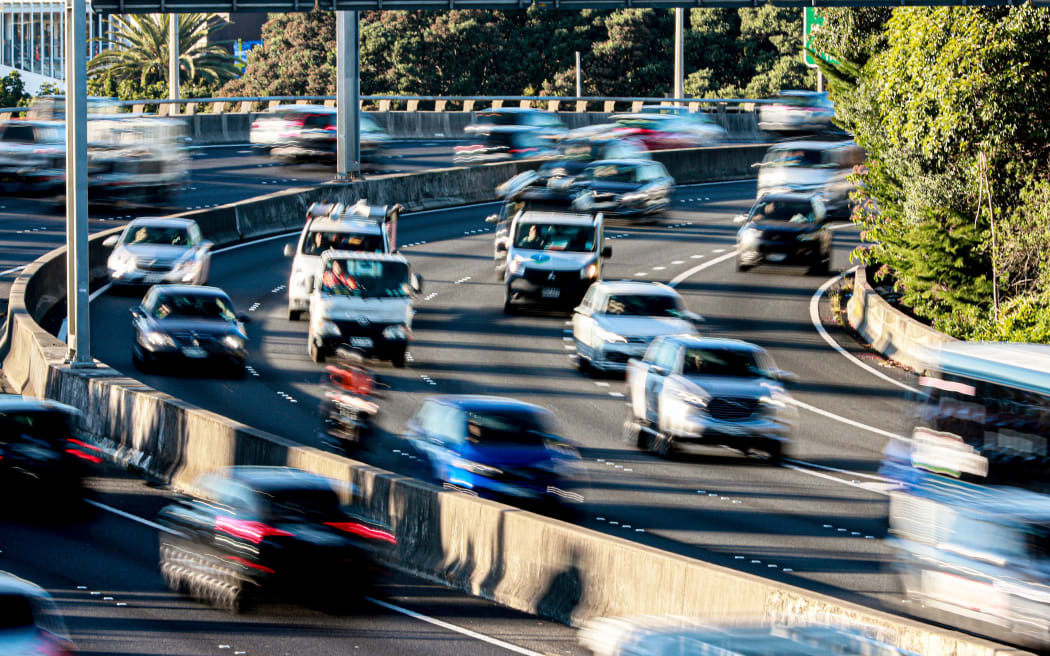
Photo: RNZ / Marika Khabazi
Auckland Transport and Auckland Council are set to team up to bring congestion charges to the super city's roads in the next two years, hoping to coax commuters off the motorways during peak hour.
The council is a step closer to coaxing commuters off the city's motorways during peak hour.
On Thursday, its Transport and Infrastructure Committee voted 18 to two in favour of setting up a team to oversee the implementation of the 'time of use' charges.
Mayor Wayne Brown had earlier proposed charges between $3.50 and $5 a trip for travel during peak times on State Highway One between Penrose and Greenlane, and State Highway 16 between Lincoln Road and Te Atatū Road.
And those charges could come into effect as soon as 2025.
Environmental activists Extinction Rebellion broke into song at the meeting to support the mayor's proposal to reduce congestion across the city.
Congestion charges have been on the cards for Auckland since 2017.

Auckland mayor Wayne Brown. Photo: RNZ / Marika Khabazi
Auckland Council's lead transport advisor Michael Roth said the city needed to charge to deal with its traffic woes.
"There has been a strong emphasis in the Long Term Plan and in the broader processes that we need to make the most of our existing network before we go and spend a lot of money on building major projects," Roth said.
Charging could reduce traffic across the city's roads by about 10 percent, depending on the design of the charges, he said.
"If you build more roads, you encourage more people into cars and you encourage existing drivers to drive further, so any congestion relief is very short term.
"Building our way out of this is nigh on impossible, it is too expensive and it does not really solve the problem, so we need to manage demand."
But there was scepticism from the governing body.
Some questioned the equity of charging those who have no choice but to travel at peak times.
Roth said those concerns would be addressed through deliberate democracy processes down the line.
"It can't just all be about carrots, we need some sticks," he said.
"If we want to build a better transport system, someone has to pay for it and it's a matter of choosing who should pay for it. Should it only be the ratepayers or should it be some of those who'd benefit directly from the scheme?"
Councillor Josephine Bartley said those from south and West Auckland were restricted in terms of when and how they commute into town.
"A lot of our communities from south and West [Auckland] that are coming into the city, that don't have a choice of working from home, are in those low skilled jobs so wouldn't be able to negotiate start times and finish times with their employers."
She said that was something that needed to be investigated further.
"I still have the same concerns I had when I voted against this when it came to planning committee," Bartley said.
"That it is going to be those that are on lower incomes that are going to be hit hardest by this."
An impassioned Brown said the charges would help everyone.
"This is a good thing, don't get lost in it," he said.
"The aim of time charging is to encourage a small number of people currently travelling to change their travel time ... or switch to public transport. This allows most people on the road a much faster and more reliable time on the road, which will be cheaper for them."





